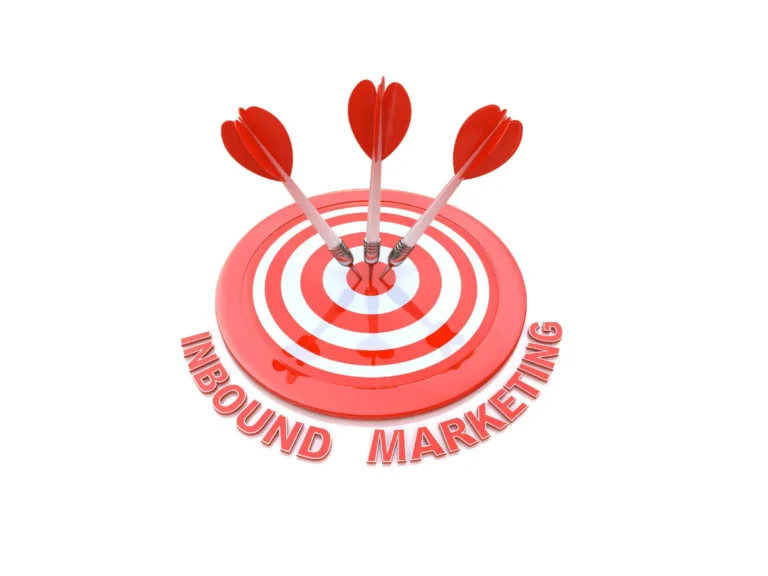
The digital landscape isn’t what it used to be. Your brand’s reputation now thrives on social media platforms. With 4.8 billion social media users worldwide as of 2024, what people say about your business online can either lift you or bring you down.
Social media reputation management has evolved from a nice-to-have to an absolute necessity for all businesses. Which is why, in the article, you’ll be learning about how to manage your social media reputation.
What Is Social Media Reputation Management?
Social media reputation management is the systematic approach to monitoring, influencing, and controlling your brand’s perception across social media platforms. It encompasses everything from tracking brand mentions and responding to customer feedback to proactively creating content that showcases your brand in a positive light.
Unlike traditional reputation management, social media reputation management operates in real-time. A single negative post can go viral within hours, making swift and strategic responses crucial for protecting your brand’s image.
Core Elements of Social Media Reputation Management
To effectively manage your social media reputation, you need to understand the key elements. Here are the essential elements every business should focus on:
| Element | What it Means | Impact Level |
| Monitoring | Tracking brand mentions, hashtags, and conversations | High |
| Response Management | Addressing customer feedback and concerns | Critical |
| Content Strategy | Creating positive brand content | Medium |
| Crisis Management | Handling negative publicity | Critical |
| Community Building | Fostering positive relationships | High |
Why Social Media Reputation Management Matters
The impact of social media on business success cannot be overstated. According to a 2024 BrightLocal study, 87% of consumers read online reviews for local businesses, and 94% say positive reviews make them more likely to use a business.
Business Impact Statistics (2024)
- 73% of consumers trust a business more after reading positive online reviews
- One negative review can cost a business up to 30 potential customers
- Businesses that respond to reviews earn 1.7x more revenue than those that don’t
- 68% of consumers form an opinion after reading just 1-6 online reviews
For businesses operating in competitive markets like the US and Nigeria, maintaining a strong social media reputation directly correlates with:
- Customer acquisition: Positive online presence attracts new customers
- Customer retention: Active engagement builds loyalty
- Revenue growth: Better reputation leads to increased sales
- Competitive advantage: Strong reputation differentiates from competitors
Key Components of Effective Social Media Reputation Management
Building a robust social media reputation management system requires several interconnected components working together. Let’s explore the three pillars that form the foundation of successful reputation management.
1. Comprehensive Monitoring System
The foundation of any successful reputation management strategy starts with knowing exactly what’s being said about your brand across the digital landscape. This requires monitoring:
- Direct mentions of your brand name
- Branded hashtags and campaigns
- Industry-related keywords
- Competitor mentions for context
- Review sites and social platforms
2. Strategic Response Framework
Once you understand what people are saying, having a clear and consistent approach to responding is crucial for maintaining professionalism and building trust with your audience. You can respond strategically through:
Positive Feedback Response:
- Acknowledge and thank customers
- Share positive reviews on your channels
- Use testimonials in marketing materials
Negative Feedback Response:
- Respond quickly (within 2-4 hours ideally)
- Address concerns publicly first, then move to private channels
- Offer solutions and follow up
Neutral Feedback Response:
- Engage to build relationships
- Provide additional value or information
- Convert neutral interactions into positive ones
3. Proactive Content Creation
The most successful reputation management strategies don’t just react to what others say. They proactively shape the conversation around your brand through strategic content creation. Rather than only reacting to what others say, create content that shapes perception:
- Share customer success stories
- Highlight company values and culture
- Showcase expertise through educational content
- Document community involvement and social responsibility
Social Media Reputation Management Strategies
Now that we understand the components, let’s explore actionable strategies that will help you build and maintain a strong social media reputation. These proven approaches have helped countless businesses protect and enhance their online presence.
Strategy 1: Real-Time Social Listening
Implement comprehensive social listening to catch mentions early. This involves:
- Setting up alerts for brand keywords
- Monitoring competitor activities
- Tracking industry trends and conversations
- Identifying influential voices in your space
Strategy 2: Community Building and Engagement
Build a strong community around your brand by:
- Consistently sharing valuable content
- Engaging authentically with followers
- Creating user-generated content campaigns
- Hosting live sessions and Q&As
- Participating in industry conversations
Strategy 3: Crisis Preparation and Response
Prepare for potential reputation crises with our crisis management checklist:
- Identify potential crisis scenarios
- Create response templates for common issues
- Establish an internal response team
- Set up escalation procedures
- Prepare holding statements for immediate use
- Plan post-crisis reputation recovery activities
While many businesses attempt to handle social media marketing strategies in-house, partnering with experts like Techdella ensures professional, strategic management of your online reputation without the stress and learning curve of doing it yourself.
Tools and Technologies for Reputation Management
The right tools can make the difference between reactive scrambling and proactive reputation management. Here’s a comprehensive look at the top tools that can streamline your reputation management efforts.
Essential Monitoring Tools
Free Options:
- Google Alerts for basic mention tracking
- Social platform native analytics
- TweetDeck for Twitter monitoring
Paid Solutions:
- Hootsuite for comprehensive social monitoring
- Brandwatch for advanced sentiment analysis
- Sprout Social for integrated response management
- Mention for real-time alerts across platforms
Analytics and Measurement
Track key performance indicators to measure reputation management success:
- Sentiment score trends
- Response time to negative feedback
- Engagement rates on reputation-related content
- Share of positive vs. negative mentions
- Customer satisfaction scores
Industry-Specific Considerations
Different industries face unique reputation management challenges. Understanding these the percularity of your industry can help you tailor your approach for maximum effectiveness.
For Healthcare and Dental Practices
Healthcare businesses face unique challenges with social media reputation management. Patient privacy laws require careful handling of testimonials and reviews, while dental social media marketing and online reputation management require specialized knowledge of healthcare regulations.
Key considerations include:
- HIPAA compliance in all social interactions
- Professional tone in all communications
- Educational content that builds trust
- Patient testimonial management within legal boundaries
For E-commerce and Retail
Retail businesses face reputation challenges across multiple customer touchpoints, from product quality to shipping and customer service experiences.
Key considerations include:
- Product review integration
- Customer service response management
- Influencer relationship management
- User-generated content campaigns
For Professional Services
Service-based businesses rely heavily on trust and expertise, making reputation management crucial for establishing credibility and attracting high-value clients.
Service-based businesses focus on:
- Thought leadership content
- Client success stories
- Industry expertise demonstration
- Professional network engagement
Measuring Your Social Media Reputation Management Success
What gets measured gets managed. Establishing clear metrics and regular reporting processes ensures your reputation management efforts drive real business results.
Key Metrics to Track
| Metric Category | Specific Metrics | Measurement Frequency |
| Sentiment | Positive/Negative mention ratio | Daily |
| Engagement | Response rate, engagement rate | Weekly |
| Reach | Brand mention volume | Monthly |
| Conversion | Social traffic to sales | Monthly |
| Customer Service | Response time, resolution rate | Daily |
Reporting and Analysis
Create regular reports that include:
- Sentiment trend analysis
- Response time performance
- Engagement quality assessment
- Competitor comparison
- ROI of reputation management efforts
Common Mistakes to Avoid
Learning from common pitfalls can save you time, money, and reputation damage. Here are the most frequent mistakes businesses make in social media reputation management and how to avoid them.
1. Ignoring Negative Feedback
Avoiding negative comments or reviews only makes problems worse. Address issues head-on with professionalism and solutions.
2. Over-Automating Responses
While automation helps with monitoring, personal responses are crucial for reputation management. Generic responses can damage credibility.
3. Inconsistent Brand Voice
Maintain consistent tone and messaging across all platforms and responses to build trust and recognition.
4. Focusing Only on Major Platforms
Monitor niche platforms and industry-specific sites where your audience might be discussing your brand.
5. Reactive-Only Approach
Combine reactive responses with proactive content creation and community building for comprehensive reputation management.
At Techdella, we understand that managing social media reputation while running a business can be overwhelming. Our social media marketing services include comprehensive reputation management, allowing you to focus on your core business while we protect and enhance your online presence.
Whether you’re planning festive social media campaigns or implementing holiday-themed giveaway strategies, maintaining a positive reputation should be integrated into every campaign and interaction.





